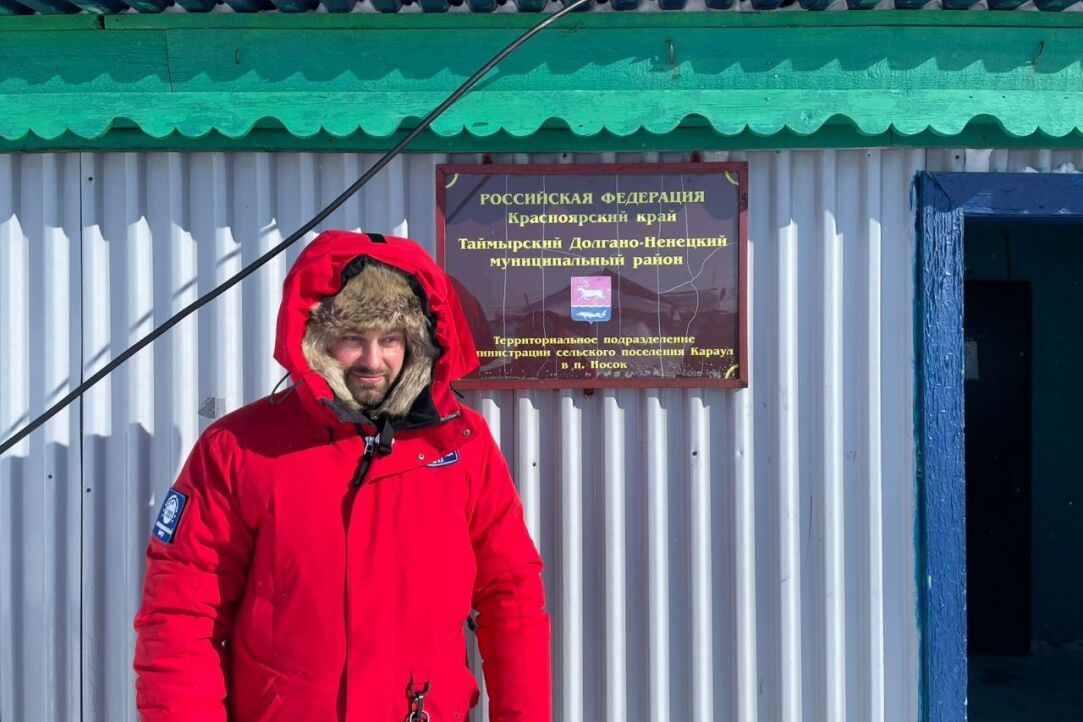The human-centric barriers of digital transformations and its local responses in the contemporary Russian society
The International Laboratory for Digital Transformation in Public Administration examines the human-centric barriers of digital transformation in local communities in the Arctic and North-Western areas of the Russian Federation. Leading Research Fellow Anna Sanina and Research Fellow Pavel Suvorkov are reporting the actual updates about the fieldworks carried out on the Taimyr Peninsula, Krasnoyarsk Krai.

The project of the International Laboratory for Digital Transformation in Public Administration aims at investigating the human-centric barriers of digital transformations in the Arctic and North-Western social and natural environments and covers research questions as follows:
− territorial inequality in digital transformations; the pace of digital transformations in everyday life;
− the integration of digital technologies and products into daily practices of people in the target regions;
− technical competencies of the population and they active participation in digital transformation;
− a common sense understandings of a digital footprint and its impact effect on social relations, hierarchies and local institutions;
− digital optimism and digital pessimism as new heyday social and mental mechanisms;
− other human-centric barriers of digital transformations.
The main focus of this project is on demographic, socio-economic and psychological factors of adaptation to digital transformations (in the broadest sense of this process) in Russia that are heterogeneous in terms of socio-economic, demographic and settlement profile of the population.
This project examines both quantitative and qualitative aspects of the dynamics of the process of digital transformations and digitalization of the population of Russia. Convergence and divergence in digitalization for certain groups and contingents of the population in comparison with the situation in different regions in the country are of our great interest.
Research fellows of the HSE International Laboratory for Digital Transformation in Public Administration plan to characterize individual motivations for using digital tools in everyday routine.
Specialists from the Center for Arctic and Siberian Exploration of the Sociological Institute of the Russian Academy of Sciences (a branch of the Federal Center of Theoretical and Applied Sociology, the Russian Academy of Sciences) supervised by Dr. Veronica V. Simonova triggered the first try to test a formal interview in Taimyr Peninsula. The financial support of our first Arctic expedition within the framework of this project was granted by the Fund «Resource Center Arktika».
The Arctic zone has a high potential for developing the considered topic due to the diversity of social, cultural and environmental contexts. The understanding of practical implementations of digital technologies in the Arctic is highly important for social resilience and wellbeing of local communities including indigenous peoples.
We shall employ vanguard methods in order to investigate on the dynamics of indicators of digital transformations at the micro level of everyday mundane during our fieldwork. We shall bring empirical database consisting of transcripts of conversations, semi-structured and formalized interviews, focus group interview and visual records. This database will allows studying semantic codes of automatic natural language processing.
We suggest analyzing the «transmission of the cultural code» which affects the features of the population's involvement into digital transformations. The preliminary research questions are: what are the sources of influence on such transmission in terms of generational and gender perspectives as well as settlement differences; to what extent the possible conservation of digital pessimism affects the intensity of digital transformations in various social and cultural contexts?
We shall also classify motives and of digital transformation at the level of ethno-economic institutions and individual households. Finally, we shall find out which motivational factors are embedded into the local «cultural code» and social structure, and how the external «demand for digitalization» coexists with certain neo-archaic practices. Our research consider regional and Federal administrative levels.
